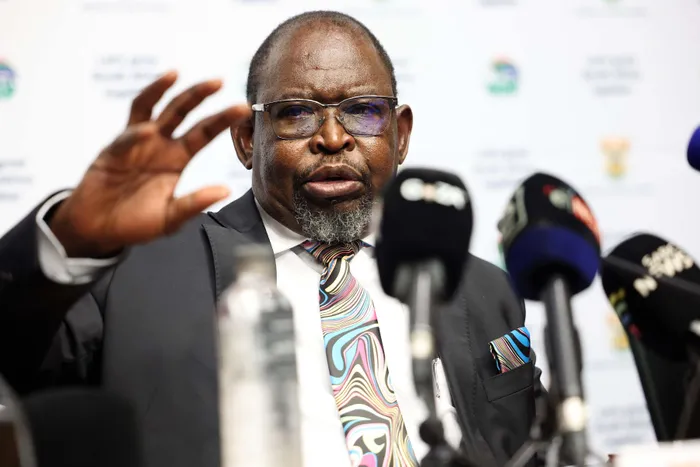BofA sees possible S&P upgrade for South Africa after mid-term budget despite fiscal pressures
CREDIT RATINGS

In its latest note released on Friday, BofA said the upgrade could come after the tabling of the Medium-Term Budget Policy Statement (MTBPS), expected later this month, even as the country continues to face fiscal headwinds and structural constraints.
Image: Jairus Mmutle | GCIS
The Bank of America (BofA) has flagged a potential credit rating upgrade for South Africa later this month, saying that S&P Global Ratings could lift the country’s sovereign rating to ‘BB’ if the government delivers stronger economic growth and successfully reduces its debt-to-GDP ratio.
In its latest note released on Friday, BofA said the upgrade could come after the tabling of the Medium-Term Budget Policy Statement (MTBPS), expected later this month, even as the country continues to face fiscal headwinds and structural constraints.
S&P, which downgraded South Africa to sub-investment grade in April 2020 due to the economic fallout from the COVID-19 pandemic, currently rates the country’s foreign currency debt at ‘BB-’ and local currency debt at ‘BB’, both with a positive outlook.
The agency in May said the positive outlook reflected the potential for stronger growth than it currently expected, despite trade- and tariff-related headwinds, alongside government debt consolidation, “if the coalition government can accelerate economic and fiscal reforms while addressing infrastructure pressures”.
It added that the ratings on South Africa benefited from the country's sizable and sophisticated financial system that provides a deep funding base for the government.
S&P said the country also has relatively strong institutions, with good checks and balances, particularly its central bank, the South African Reserve Bank (Sarb).
However, the ratings were constrained by relatively low GDP per capita and low GDP growth rates, as well as sizable fiscal deficits and high government debt.
South Africa’s public finances remain fragile, with fiscal consolidation progressing slowly amid rising spending pressures and constrained tax revenue growth. Analysts noted that a weak domestic economy, still hampered by structural bottlenecks in energy and freight logistics, continues to weigh on growth and revenue collection.
Weaker terms of trade have also contributed to gradually widening current account deficits, reinforcing concerns about the country’s external position.
BofA holds an overweight position on South Africa’s Eurobonds (EXD), citing attractive valuations and improved political stability under the Government of National Unity (GNU), according to market analysts.
Tatonga Rusike, Sub-Saharan Africa economist at the BofA, said the long end of South African sovereign debt remains rated BB-, yet current spreads imply a B+ credit rating — more than one notch below its official level — suggesting that bonds are undervalued relative to fundamentals.
Rusike said the year 2025 is expected to be relatively stable for the GNU, formed after the May elections, as the administration continues to prioritise structural and fiscal reforms aimed at restoring investor confidence.
He said that improved coordination between the Presidency, Treasury, and key ministries could help accelerate growth-friendly policies and crowd in private investment.
However, Rusike cautioned that downside risks remain, including the potential for political instability within the GNU and uncertainty over future US government policy shifts that could impact global risk appetite and emerging market capital flows.
“Public finances are weak with fiscal consolidation slow due to increased spending pressures, while tax revenues growth is constrained by a weak economy. Economic growth had been weighed down by structural weaknesses in energy supply and rail logistics constraints. Weaker terms of trade also mean gradually rising current account deficits,” he said.
“Upside risk: S&P could upgrade South Africa to BB in November 2025 on higher GDP growth and declining debt to GDP.”
BofA is also of the view that the door is open to a 25 basis points interest rate cut by the Sarb later in the month after two benign consumer price inflation (CPI) prints in a row – 3.3% in August and 3.4% in September.
“We have flagged previously that any CPI downside surprises could give the Sarb room to cut one more time to 6.75% and we now change our call to a cut from a hold in November. We maintain our view of no immediate rate cuts thereafter,” it said.
BUSINESS REPORT